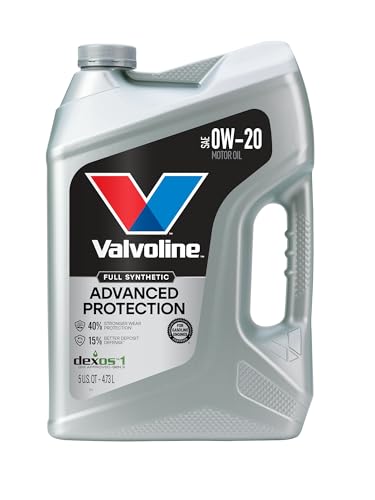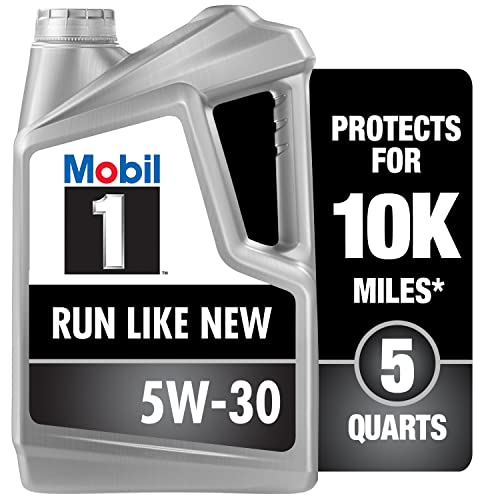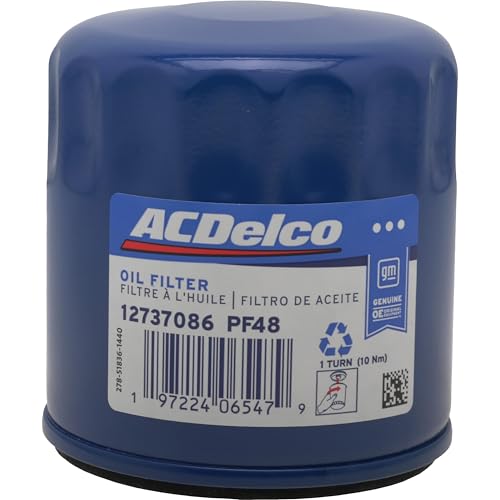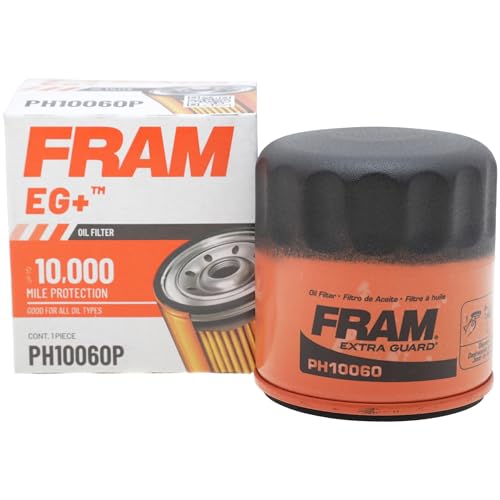
| Engine | Oil capacity (with filter) | Oil type |
|---|---|---|
| 2.0L 4-cyl EC1 Turbo | 5 quarts (4.73 liters) | 0W-20 or 5W-30 |
The Dodge Hornet, known for its formidable performance and reliability, is popular among car enthusiasts and everyday drivers.
This model blends power, durability, and style, making it a standout vehicle. However, paying close attention to its engine oil needs is essential to keep it running at its peak.
The right oil ensures your Hornet’s engine is protected and performs efficiently, whether navigating city streets or cruising on the highway.
Understanding Your Dodge Hornet’s Engine
The Dodge Hornet sets itself apart with an engine built for power and efficiency. Under the hood, it typically houses a robust engine configuration designed to balance performance and fuel economy. The specific engine specifications can vary depending on the model and year.
Generally, the Hornet is equipped with a capable EC1 engine, a four-cylinder turbocharged variant, that offers a spirited driving experience. This engine is engineered to provide substantial horsepower and torque, making the Hornet a pleasure to drive on open highways or urban roads.
Its advanced engineering is a testament to Dodge’s commitment to delivering vehicles that combine power with practicality.
The Role of Engine Oil in Your Dodge Hornet
In this high-performing engine, the role of engine oil cannot be overstated. Engine oil is the lifeblood of your Dodge Hornet’s engine, serving several critical functions.
First and foremost, it acts as a lubricant, reducing friction between moving parts and preventing wear and tear. This is crucial in maintaining the engine’s longevity and ensuring smooth operation.
Additionally, engine oil plays a vital role in heat management. Absorbing and dissipating heat prevents overheating, which is essential for maintaining the engine’s optimal operating temperature.
Engine oil also helps in keeping the engine clean. It collects and holds onto debris and particles, preventing them from causing damage or reducing efficiency.
For these reasons, selecting the right engine oil and adhering to proper maintenance schedules are key to the health and performance of your Dodge Hornet’s engine.
Engine Oil Capacity of the Dodge Hornet
The engine oil capacity of the Dodge Hornet is a critical aspect to understand for proper maintenance. This capacity can vary based on the engine model and year of manufacture. Ensuring that your Hornet has the correct amount of oil is vital for its performance and longevity.
| Year | Model | Engine Type | Oil Capacity (Quarts) |
|---|---|---|---|
| 2021 | Hornet | 2.0L 4-Cylinder Turbocharged | 5.0 quarts |
Understanding the Importance of Accurate Oil Capacity
Having the right amount of oil in your engine is crucial. Too little oil can lead to increased friction and overheating, which can cause significant engine damage. On the other hand, overfilling with oil can create excessive pressure, leading to oil leaks or even engine failure.
Regularly checking your engine oil level and maintaining the correct oil capacity ensures that your Dodge Hornet’s engine operates efficiently and remains healthy.
This simple yet essential aspect of car maintenance can significantly impact your vehicle’s overall performance and longevity.

Choosing the Right Oil for Your Dodge Hornet
Selecting the appropriate engine oil for your Dodge Hornet is not just a matter of fulfilling a routine maintenance task; it’s a decision that can significantly impact the performance and longevity of your vehicle.
Based on my experience as a professional mechanic and a Dodge enthusiast, I strongly recommend carefully considering the type of oil you use in your Hornet.
Recommended Engine Oil Types for Dodge Hornet
Synthetic oil is generally the best choice for the Dodge Hornet, particularly the newer models with advanced engine designs. Synthetic oils are engineered to provide superior protection and performance compared to conventional oils, especially in extreme temperatures.
They offer better viscosity at low temperatures and don’t break down as quickly at high temperatures. This means your Hornet’s engine will be well-protected against wear and tear, regardless of the driving conditions.
I typically recommend oils like 5W-30 or 0W-20 for the Hornet, especially if it has a turbocharged engine. These multi-grade oils provide excellent all-season performance, ensuring smooth engine operation in hot and cold weather.
Personal Recommendations and Opinions
I think investing in a high-quality synthetic oil is a wise decision for Hornet owners. Not only does it enhance engine performance, but it also extends the time between oil changes, making it cost-effective in the long run.
Brands such as Mobil 1, Castrol, and Royal Purple have consistently delivered outstanding engine protection and efficiency results.
- Mobil 1 Advanced Fuel Economy full-synthetic motor oil 0W-20 is low-viscosity to help improve fuel economy.*
- Utilizes Mobil 1’s signature Triple Action Formula to deliver outstanding engine performance, protection, and cleanliness
- Helps protect critical engine parts for up to 10,000 miles between oil changesm,** controlling oxidation to prevent oil breakdown and maintaining excellent viscosity
- Meets ILSAC GF-6 standards to help provide low-speed pre-ignition (LSPI) and timing chain wear protection while keeping your engine clean
- Advanced protection against the four main causes of engine breakdown: wear friction heat and deposits
- Delivers 40% stronger wear protection than industry standards to reduce friction and improve fuel economy
- Provides 15% better deposit defense vs. industry standards, keeping engines cleaner for smoother performance and longer-lasting protection
- Up to 2.5X better heat protection vs. industry standards to fight harmful sludge formation and thermal breakdown
- 6X better wear protection on critical engine parts than industry standards**
- 1.3X better sludge protection than industry standards*
- 3X Stronger against viscosity breakdown than leading full synthetic^
- Protection for 10,000 miles between oil changes
- MaxLife Technology prevents engine breakdown with 40% better wear protection than the industry standard
- Includes seal conditioners to reduce oil consumption and oil leaks in high mileage engines.
- Added detergents reduce sludge, corrosion, rust and deposits to help keep motors clean inside and ensure a smooth-running engine.
- Advanced friction-fighting additives help maximize performance and improve fuel efficiency.
- Phosphorus Replacement Technology helps extend emission system life
- Superior dispersancy that fights sludge build up
- Exceptional oil burn-off protection exceeding industry standards* | Seal conditioners to help reduce leaks
- Advanced additives that help prevent engine wear | Improved Fuel Economy**
- Mobil 1 advanced full-synthetic motor oil 5W-30 utilizes Mobil 1’s signature Triple Action Formula to deliver outstanding engine performance, protection, and cleanliness.
- Helps protect critical engine parts for up to 10,000 miles between oil changes,* controlling oxidation to prevent oil breakdown and maintaining excellent viscosity
- Meets ILSAC GF-6 standards to help provide low-speed pre-ignition (LSPI) and timing chain wear protection while keeping your engine clean and helping to improve your fuel economy
- Mobil 1 is specially formulated to help remove sludge and lower engine temperatures
Engine Oil Filter for Dodge Hornet: A Crucial Component
The engine oil filter in your Dodge Hornet is indispensable in maintaining engine health and efficiency. As a seasoned mechanic, I cannot stress enough the importance of a quality oil filter in safeguarding your engine’s longevity.
The oil filter traps contaminants that could otherwise damage internal engine components. Over time, engine oil accumulates particles like dirt, metal shavings, and carbon deposits. A high-quality oil filter effectively removes these impurities, ensuring only clean oil circulates back into the engine. This process is vital for preventing premature wear and tear of engine parts, which could lead to costly repairs.
Recommended Oil Filters for Dodge Hornet
For the Dodge Hornet, choosing the right oil filter is as crucial as selecting the appropriate engine oil. I recommend opting for filters from reputable brands that are known for their high filtration efficiency and durability.
Brands like Mopar, Bosch, Mobil 1, and WIX offer filters designed to work optimally with the Hornet’s engine. These filters balance good filtration and appropriate oil flow, maintaining engine performance and reliability.
Regular replacement of the oil filter during oil change intervals is crucial. A clogged or old filter can lead to reduced oil flow and increased wear on the engine.
- Helps keep abrasive particles away from bearings and other engine hydraulic components
- Some ACDelco GM Original Equipment parts may have formerly appeared as GM Genuine Parts (OE) or ACDelco Professional
- ACDelco GM Original Equipment parts are designed, engineered and tested to rigorous standards, and are backed by General Motors
- GM Engineers design and validate OE parts specifically for your Chevrolet, Buick, GMC, or Cadillac vehicle
- Mopar OEM part that fits your specific vehicle
- FILTER ENGINE OIL
- Part Number: 04892339BE
- Manufactured to meet specifications for fit, form, and function
- REPLACEMENT ENGINE OIL FILTER: With a proven protection for up to 10,000 miles, this automotive oil filter replacement is perfect for everyday drivers who perform frequent maintenance on their vehicles
- ADVANCED ENGINE PROTECTION: A special blend of cellulose and glass creates a proprietary filter media that provides advanced engine protection for your vehicle, whether you’re using conventional or synthetic motor oil
- CAPTURES 95% OF DIRT PARTICLES: Built to balance 95% dirt-trapping efficiency with dirt-holding capacity, capturing nearly all of the dirt particles that can cause harmful engine wear
- NON-DRAIN BACK VALVE: Engineered with a silicone non-drain back valve that delivers superior start-up engine protection with up to 3X the hot oil resistance
For the Dodge Hornet, coupling quality engine oil with a top-tier oil filter is a surefire way to keep your engine running smoothly and efficiently. This combination invests in your vehicle’s health, ensuring peace of mind and enhanced driving experience.
Oil Change Process for Dodge Hornet
Changing the engine oil in your Dodge Hornet is a straightforward process that can significantly contribute to your vehicle’s longevity and performance. As a seasoned mechanic, I advise Hornet owners to familiarize themselves with this essential maintenance task.
Step-by-Step Guide to Changing Engine Oil
- Prepare Your Vehicle: Ensure your Hornet is on a level surface. Running the engine for a few minutes warms the oil, making it easier to drain.
- Drain the Old Oil: Locate the oil drain plug under the vehicle and place an oil catch pan beneath it. Remove the plug with a wrench and allow the old oil to drain completely.
- Replace the Oil Filter: While the oil drains, remove the old oil filter. Apply some oil to the new filter’s gasket and install it, ensuring it’s hand-tight.
- Refill with New Oil: Reinsert the drain plug once the oil has drained and the filter is replaced. Pour in the new oil through the engine’s fill hole, using the correct type and amount specified for your Hornet.
- Check the Oil Level: After filling, start the engine for a minute, then turn it off and check the oil level with the dipstick. Add more oil if necessary to reach the full mark.
Tools and Equipment Needed for an Oil Change
- Wrench for the drain plug
- Oil catch pan
- New oil filter
- Quality engine oil
- Funnel
- Clean rag
- Protective gloves
Regular oil changes are key to maintaining your Dodge Hornet’s engine health. While some owners prefer DIY, others might opt for professional services. Either way, ensuring this task is done correctly and regularly is paramount for your vehicle’s optimal performance.
Dodge Hornet Oil Change Light Reset
To reset the oil life on a 2023 Dodge Hornet, follow these steps:
- Shift the vehicle into park.
- Turn the ignition to the on/run position.
- Slowly fully press the accelerator pedal three times within a span of 10 seconds.
- Turn the ignition off.
Note
Cost Considerations: Oil Change Price for Dodge Hornet
The cost of an oil change for a Dodge Hornet can vary depending on several factors. As an experienced mechanic, I have observed that prices can fluctuate based on the type of oil used, the region, and whether the service is performed at a dealership or an independent garage.
Average Price Range for Dodge Hornet Oil Change
Typically, the cost for a standard oil change in a Dodge Hornet ranges from $140 to $170. However, if you opt for synthetic oil, which I highly recommend for its long-term benefits to the engine, the price can go up to between $160 and $200.
Synthetic oil offers superior protection and performance and extends the interval between oil changes, making it a cost-effective option in the long run.
Factors Influencing the Cost of Oil Change
- Type of Oil: Synthetic oil changes are generally more expensive than conventional oil changes due to the higher cost of the oil itself.
- Location: The geographical location can impact the labor costs. Prices in urban areas tend to be higher compared to rural areas.
- Service Provider: Dealership service centers might charge more than independent garages. However, dealerships often offer specialized services and in-depth knowledge of your specific vehicle model.
It’s important to consider these factors when budgeting for your Dodge Hornet’s maintenance.
Frequency of Oil Changes: Keeping Your Dodge Hornet Healthy
Regular oil changes are crucial for maintaining the health and efficiency of your Dodge Hornet’s engine. As a seasoned mechanic, I’ve seen firsthand the difference that diligent maintenance can make in a vehicle’s performance and longevity. The frequency of oil changes for your Hornet can depend on several factors, including the type of oil used, driving habits, and the specific model of your vehicle.
Recommended Oil Change Intervals for Dodge Hornet
For most modern Dodge Hornet models, especially those using synthetic oil, the recommended oil change interval is typically between 7,500 and 10,000 miles.
However, this can vary based on the oil type and the vehicle’s usage. If you frequently drive in harsh conditions, such as extreme temperatures, stop-and-go traffic, or dusty environments, you may need to change the oil more frequently.
Signs That Your Dodge Hornet Needs an Oil Change
- Oil Change Indicator Light: Many newer Hornet models have an oil change indicator system. This light accurately indicates that it’s time for an oil change.
- Increased Engine Noise: If your engine starts to sound louder or knocks, it could be a sign that your oil isn’t lubricating the engine parts effectively.
- Darker Oil Color: Fresh engine oil is amber-colored. Over time, it darkens as it picks up particles from the engine. If your oil is dark and gritty, it’s time for a change.
- Oil Level Drops: If you notice your oil level is consistently low, it’s a sign that your engine is either consuming or leaking oil. An oil change and engine check might be necessary.
Regular oil changes are a simple yet essential aspect of vehicle maintenance that can significantly extend the life of your Dodge Hornet.
DIY vs. Professional Oil Change: What’s Best for Your Dodge Hornet?
Deciding between a DIY or professional oil change for your Dodge Hornet depends on your comfort level with car maintenance, available time, and your vehicle’s specific needs.
Pros and Cons of DIY Oil Change
Pros:
- Cost Savings: Doing it yourself can be more economical, as you only pay for the oil and filter.
- Personal Satisfaction: Maintaining your own vehicle gives a sense of accomplishment.
- Control Over Materials: You can choose the exact brand and type of oil and filter you prefer.
Cons:
- Time and Effort: It requires time and physical effort, which might be inconvenient for some.
- Tools and Space: You need the right tools and a safe area to change the oil.
- Potential for Mistakes: Without proper experience, there’s a risk of incorrect oil levels or improperly fitted filters.
Benefits of Professional Oil Change Services
- Expertise and Experience: Technicians are trained to handle different vehicles and can identify potential issues.
- Convenience: It’s hassle-free and saves time, especially for those with busy schedules.
- Proper Disposal of Old Oil: Professionals dispose of old oil and filters, which is environmentally important.
FAQs
Q1: What is the engine oil capacity for a Dodge Hornet?
A1: The engine oil capacity for a Dodge Hornet varies depending on the model and engine type. Typically, it ranges from 4.9 to 5.1 quarts. Always refer to the owner’s manual for the exact capacity for your specific model.
Q2: How often should I change the oil in my Dodge Hornet?
A2: For most Dodge Hornet models, especially those using synthetic oil, the recommended oil change interval is between 7,500 and 10,000 miles. However, this can vary based on driving conditions and oil type.
Q3: Can I use conventional oil in my Dodge Hornet?
A3: While you can use conventional oil, synthetic oil is generally recommended for better performance and engine protection, particularly in modern models. Synthetic oil offers superior lubrication and lasts longer.
Q4: What happens if I don’t change my Hornet’s oil regularly?
A4: Failing to change the oil regularly can lead to increased engine wear, reduced efficiency, potential overheating, and a shortened lifespan.
Q5: Is it better to change my Hornet’s oil myself or go to a professional?
A5: This depends on your comfort and experience with car maintenance. DIY can be more cost-effective, but a professional service provides expertise and convenience.
Q6: How do I know if my Dodge Hornet needs an oil change?
A6: Look for signs like the oil change indicator light, increased engine noise, darker oil color, or a drop in oil level. These indicate it’s time for an oil change.
Q7: Does the type of driving I do affect how often I should change my oil?
A7: Yes, driving in harsh conditions such as extreme temperatures, stop-and-go traffic, or dusty environments can require more frequent oil changes.
Last update on 2026-01-30 / Affiliate links / Images from Amazon Product Advertising API











